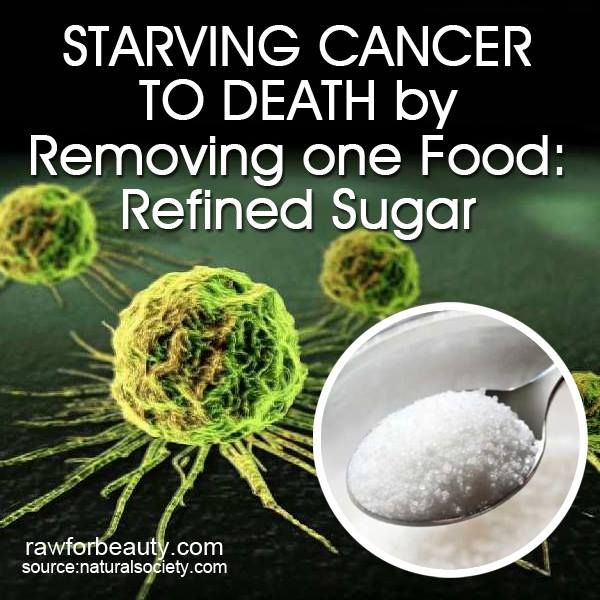
You may have heard that ‘sugar feeds cancer cells’, fuelling their rapid growth.
Or that eliminating sugar from our diet can starve or stymie cancer growth.
But is there any truth to these beliefs?
Well, the oft-repeated claim that sugar feeds cancer cells is true in a strict sense — and that may seem scary. But of course, it’s not the whole story.
The reality is that alongside cancer, sugar feeds most cells in the body and is vital to our everyday function.
The most simple forms of sugar are single molecule sugars, like glucose and fructose. These can combine to form more complex sugars like table sugar (sucrose).
All carbohydrates are sugars too, meaning foods you wouldn’t think of as sugary — like potatoes, pasta and grains — do eventually break down to simple sugars in the body.
And sugar plays a critical role in fuelling the body’s cells. Glucose, either eaten directly or broken down from carbohydrates, is critical to cell functioning.
This is the grain of truth at the heart of the concern around sugar and cancer — yes, sugar feeds cancer cells.
But it fuels them in exactly the same way it feeds all other cells in the body.
And our body can’t dictate which cells it sends energy to and which it doesn’t.
What happens if we eliminate sugar?
“Stopping sugar getting to cancer cells would also mean that your body’s healthy cells get starved of necessary sugars,” says the CEO of Cancer Council Australia, Professor Sanchia Aranda.
“I think that would make you lose weight, [and] would make your immune system less efficient and more likely that a cancer would progress.”
What’s more, our bodies are clever — they have other ways of getting glucose.
Even if you do try and cut it out, the body will just convert fat and protein stores into glucose where necessary.
How do cancer cells grow?
While sugar does feed cancer, the true picture of how cancer cells grow is a “lot more complicated than that,” says University of New South Wales cancer biologist Dr Darren Saunders.
He says there’s strong evidence some cancer cells also feed on amino acids (the building blocks of proteins) or lipids (substances including fats and oils).
These sources are used as metabolic fuel to power the cell’s necessary processes, and as raw materials for building new cells, in much the same way sugar might be used.
But they also have a secondary purpose — helping cancer cells protect themselves against chemical damage.
It’s a complex picture — different cancer cell types using different fuel sources at different times. But that mirrors the direction cancer diagnosis and treatment is heading in, Dr Saunders says.
“We’re looking more and more at differences within individual cancers between patients, rather than trying to treat them all with a blunt instrument.”
Too much sugar is still bad, right?
Though we needn’t be worried about sugar feeding cancer, that doesn’t mean you shouldn’t pay attention to your overall sugar consumption.
An excessive sweet tooth can lead to a whole host of health problems, including a greater risk of developing certain cancers.
Just as fat can be converted to sugar when it’s needed, the reverse can also happen — sugar being stored as fat when the body doesn’t require it.
Professor Aranda says people with higher sugar intakes are more likely to be overweight or obese, which is a contributing factor to cancer.
“We’ve estimated that just over 3 per cent of the total number of cancers diagnosed in Australia are related to obesity or being overweight,” she says.
Evidence suggests being overweight or obese is a risk factor for 10 different cancers — including bowel, breast and liver cancer.
And while limiting your sugar intake won’t starve cancer cells, it can help decrease the risk of you developing certain cancers, Professor Aranda says.
Dr Saunders agrees.
“Obesity is a risk factor, and eating too much sugar is a risk factor for obesity, so there’s no doubt a link there, but you can’t make the jump then to saying ‘Stop eating sugar to starve a tumour’,” he says.
“It really comes down to an individual basis. It’s impossible to make a blanket statement.”
A new way forward?
Eliminating sugar from your diet won’t help you, because you’ll be depriving other cells of a valuable fuel source too.
But what if cancer cells could selectively be starved of glucose? This is a growing focus of research for oncologists.
In 2015, research published in the journal Nature Communications found the over-production of a particular protein, PARP14, let cancer cells accelerate their growth via glucose consumption. Reducing levels of that protein in cells starved and killed them.
“There’s a few different ways of approaching it, but they’re all usually based on either blocking the ways that cells can access the fuel, or the way they can use the fuel and convert it into other things that they need to grow,” Dr Saunders says.
And he stresses that it’s not as simple as shutting off the supply of sugar to cancer cells.
“There are some cancer cells you can kill by blocking their supply to sugar, and some you can kill by blocking their supply to lipids, and some by blocking amino acids. It’s impossible to oversimplify.”
[“Source-abc.net”]


